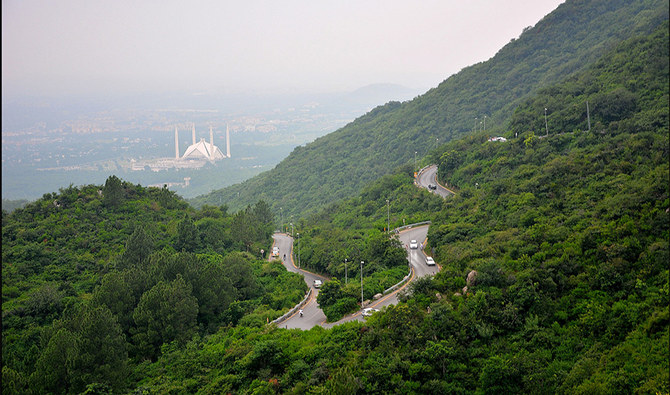Islamabad: North of Islamabad, the lush Margalla Hills mark the relatively benign beginnings of the mighty Himalayas. The cold winter months don’t usually stop outdoor enthusiasts from lacing up their hiking boots and gaining some elevation on one of the six trails. If your new year’s resolution involves incorporating more fitness into your life, whether you’re a local or just visiting, these hilly tracks are for you.
Trail 1
The first trail is a full leg workout, and requires a real time commitment-- approximately two hours depending on speed. The trail reaches its peak at the top terminal of Pir Sohawa in Islamabad. If you head up the main road for another 20 minutes, you’ll find yourself at the famous Monal restaurant, with breath-taking views of the city below.

A view of the Margalla Hills with Faisal Mosque in the distance. Since 1980, the Margalla Hills have been a protected and maintained site by the city's Capital Development Authority. Sept. 13, 2019 (Obaid Khan, Wikipedia)
Trail 2
A lighter impact trail, this is good for families and starts out just above the Pir Sohawa road, or behind the Islamabad Zoo. It ends up in Daman-e-Koh viewpoint, about halfway to the Monal, which makes it a relatively easier climb for hiking novices. The viewpoint offers attractions like playgrounds, street food, and chai wallahs. It’s also a popular tourist spot and it’s usually easy to grab a cab for the way down, if you’re done with hiking for the day. Daman-e-Koh also connects the hiking trails to the cactus ridge walking path which intersects other trails in the hills.
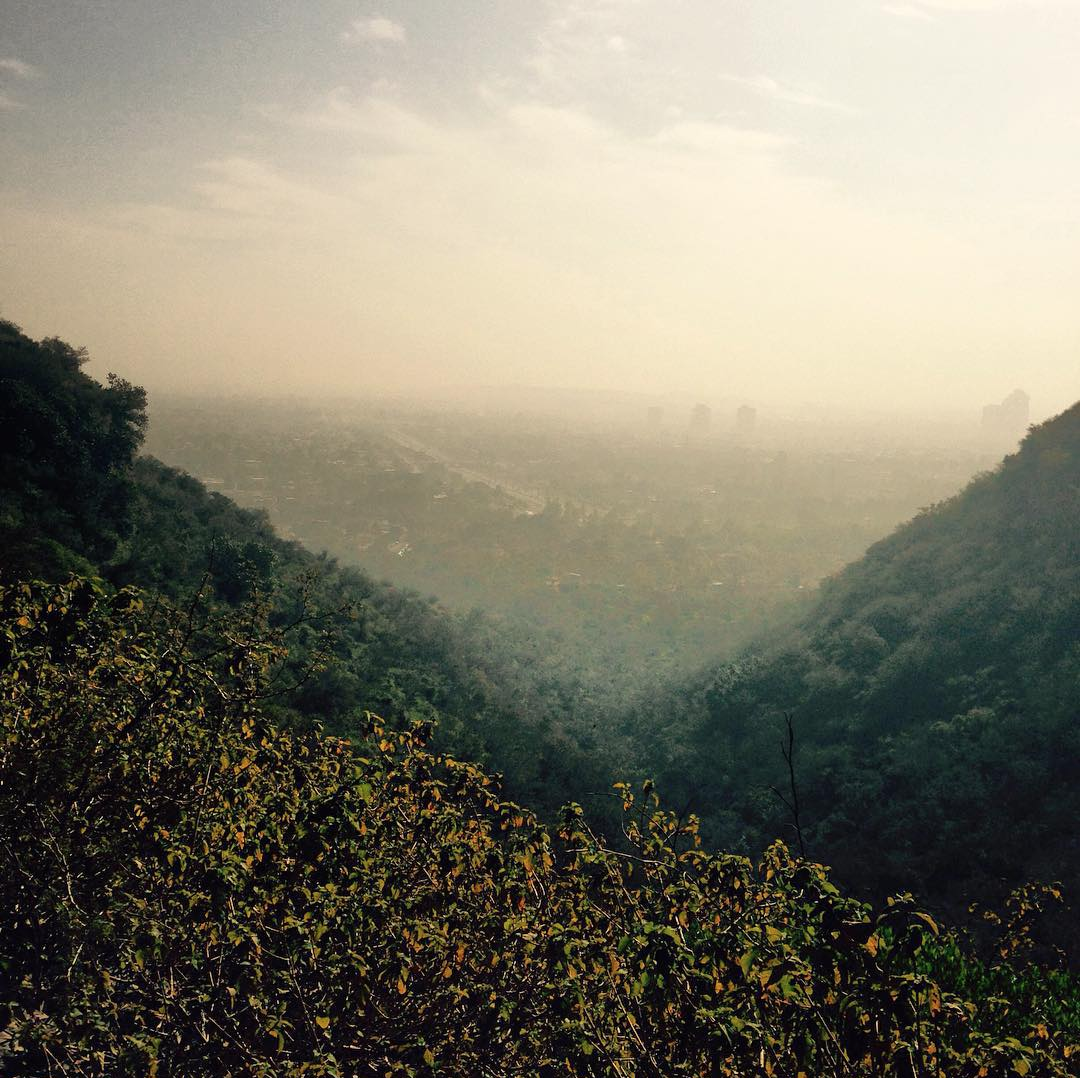
Margalla Hill's Trail 4's flat terrain connects Trail 3 and 5 and makes for a stunning walk across the hills before descending or climbing up further. April 9, 2016. (AN photo by Sabah Bano Malik)
Trail 3
The oldest and perhaps most popular of the trails is Trail 3, divided into trails ‘A’ and ‘B.’ The hike can be both challenging and relaxing depending on which you pick. With starting points off of Margalla Road in Islamabad, 3A is a steep, rocky, albeit short 40-minute hike that is a cardio buster. On the other hand, 3B is a wooden, more forest-covered trek that meets at the same viewpoint but takes a little longer at nearly an hour. The tougher 3A is also listed in the Strava runners app with an 18-minute run challenge, and also has points for people who are interested in rock climbing.
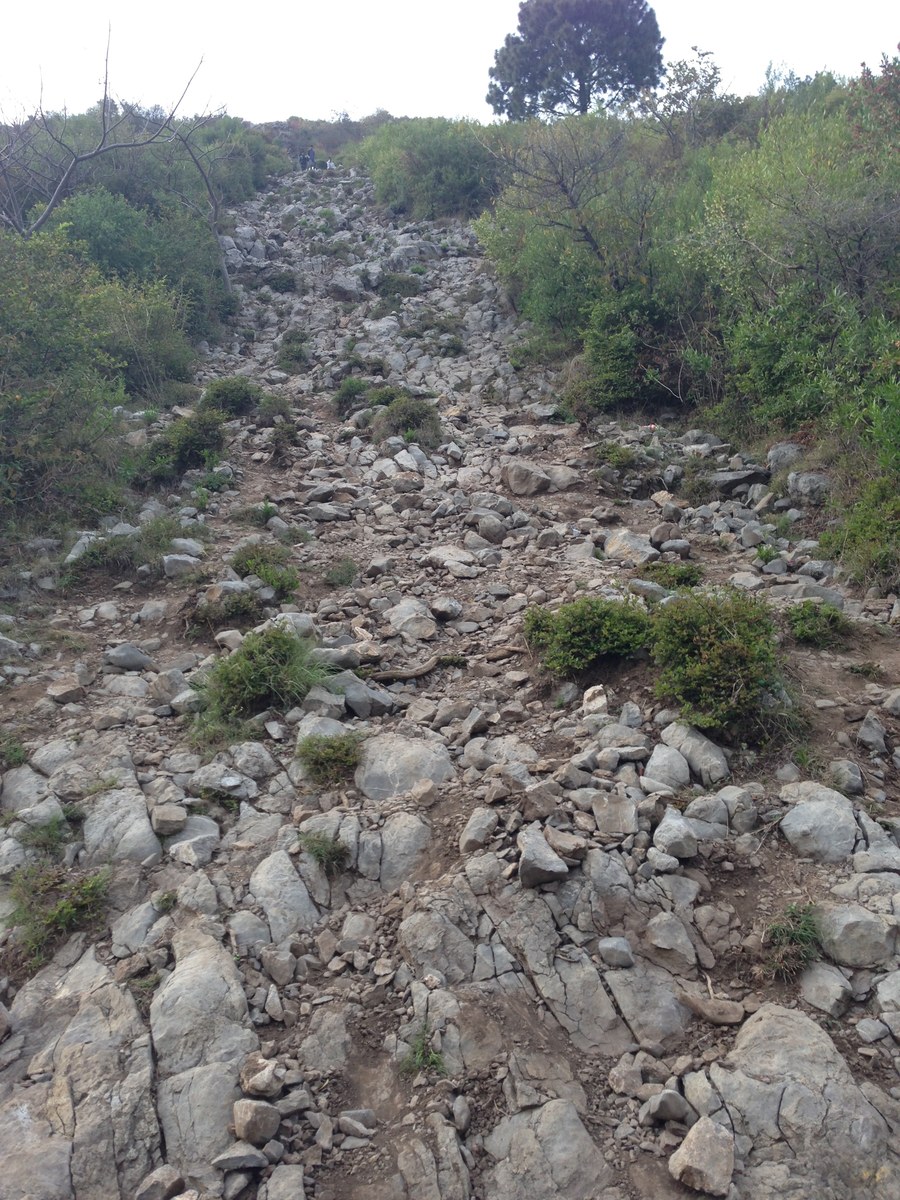
A shot of Trail 3B's fire trail- a narrow and steep slip on the side of the hills that makes for a formidable climb. May 16, 2018. (AN photo by Sabah Bano Malik)
Trail 4
If you’re looking for a longer walk with panoramic views, the stunning Trail 4 is for you. A flatter terrain nestled in the hills and home to gorgeous scenes from the hills, this trail is ideal for those looking to extend their walking time and to get immersed into the hillsides for a day of avid walking.
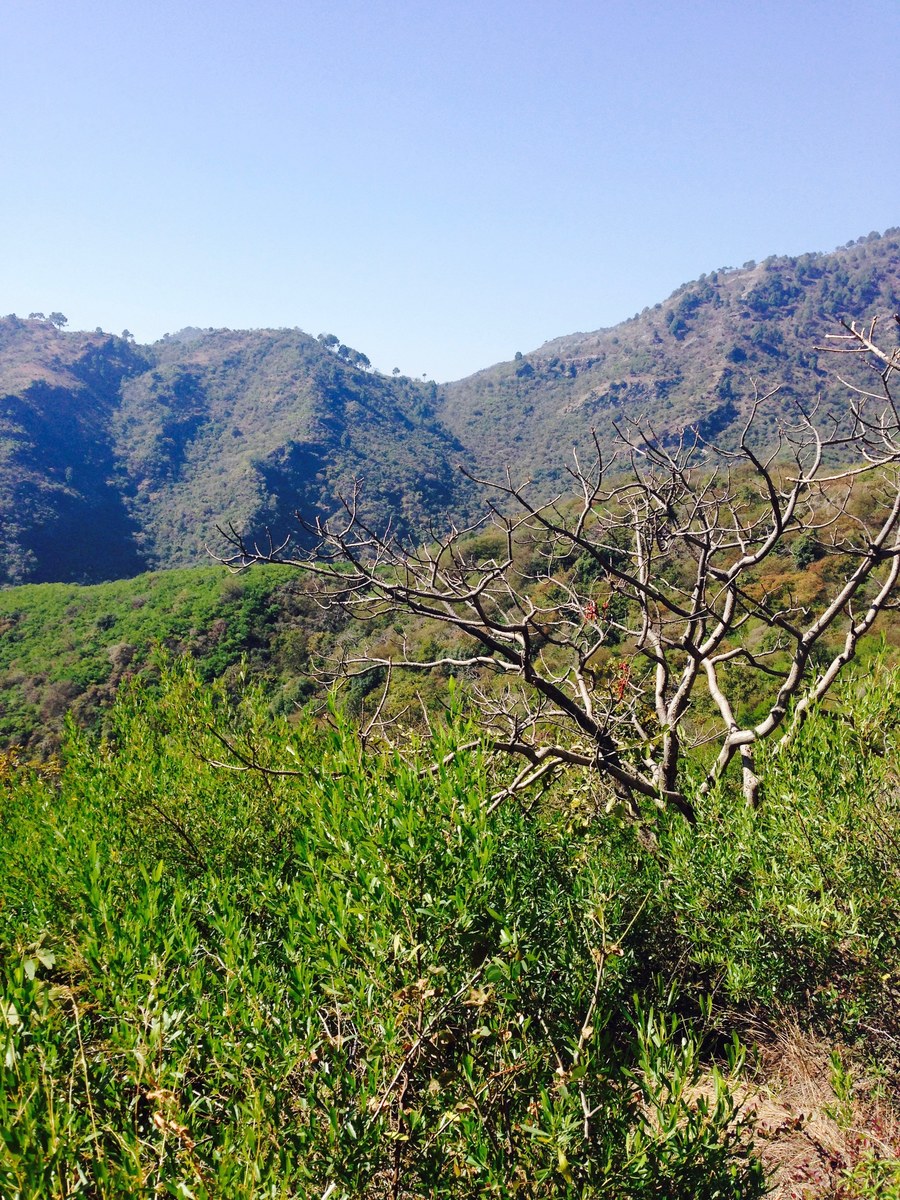
Margalla Hills National Park which frames the capital city has a number of trails interconnecting its main trails, including the cactus ridge walk that sits adjacent to Trail 2. March 12, 2015. (AN photo by Sabah Bano Malik)
Trail 5
Trail 5 is an extremely popular trail, scenic with a diverse landscape. It is ideal for runners, walkers, families, those looking for a challenge and even pets! It is one of the only trails which is dog-friendly due to its mostly flat terrain at the beginning which leads you through gorgeous forested areas punctuated with tributaries aligned with massive rock formations. Though it is not a difficult hike, it’s an adventurous one. The trail is also home to a number of scenic waterfalls and has a walking path which lands you at the gorgeous Saidpur village, which is bustling full of restaurants.
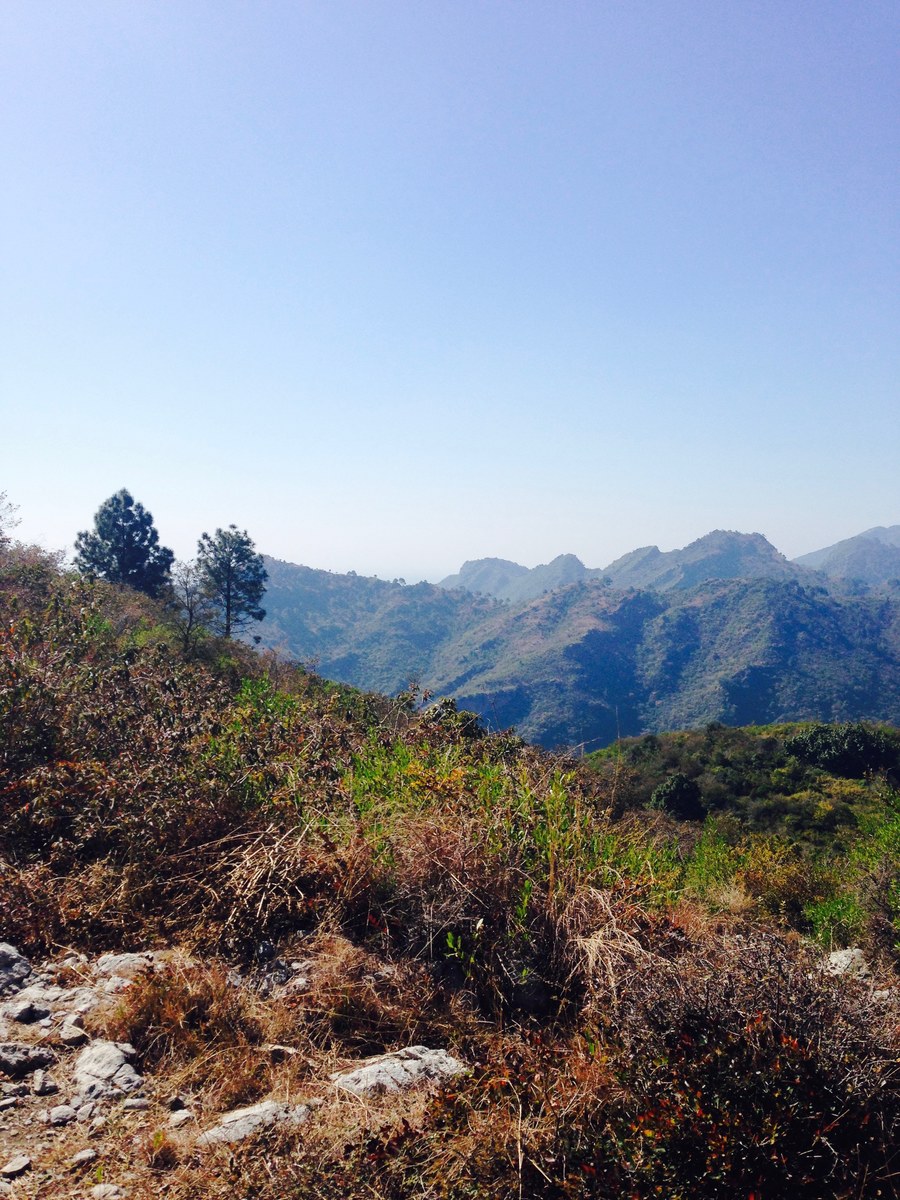
Beautiful views of the Margalla Hills north of Pakistan's capital, from a popular hiking trail. March 12, 2015. (AN photo by Sabah Bano Malik)
Trail 6
A hidden but iconic starting point behind Faisal Mosque’s visitors’ parking lot, Trail 6 is a favorite among the city’s hiking enthusiasts. It is steep with a view pay-off that makes the two-hour hike truly worth it. For avid hikers, it provides a challenging climb that is usually not as crowded as Trails 3 or 5. Trail 6 also has a track within it which is difficult and more challenging but gives you a landing spot at a waterfall great for dipping your toes into and for taking in the city beneath. This trail is not for beginners but certainly one to aspire to.


